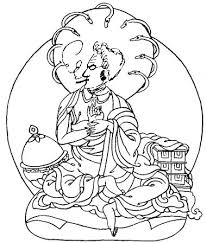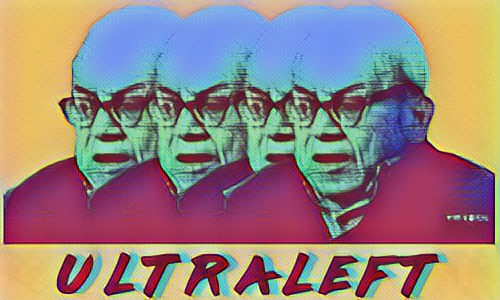Ego-Buddhism
At first look, Egoism and Buddhism appear to be utterly opposed but yet Egoism has a lot of similarities to Buddhist philosophy. With its concept of the unique being like an “inside-out” version of the anatman (no-self) and Stirner’s notion of creative nothing being like Sunyata (fertile emptiness), the two philosophies interact in interesting ways.
Śūnyatā, meaning "Emptiness" or "Voidness", is an important Buddhist teaching which claims that nothing possesses essential, enduring identity because everything is interconnected in a chain of co-becoming and in a state of constant flux. In various schools of Buddhism, Śūnyatā is a key concept used to express that everything one encounters in life is empty of absolute identity, permanence, or an in-dwelling 'self' because everything is inter-related and mutually dependent—never wholly self-sufficient or independent.
This is the idea of the illusion of the self. On the other side of this is the void which is pure nothingness with agency. This is consciousness or subjectivity. Ego-Buddhism strikes at the subject/object duality and leaves us with both and neither at the same time. There is an inexpressible internal observer that cannot ultimately be explained in words.
All things in the universe are subject to flux and change, with the only constant being that nothing is fixed and eternal. The historical Buddha was, by all accounts, just as suspicious as Stirner of "spooks" - meaning fixed ideas treated as if they're concrete (and eternal) when they're really contingent constructions of human categorization. Many abstract ideas that exert influence are mere phantasms.
So social anarchists could gain a lot from studying both Buddhism and Egosim for what both have to say about destroying bad faith and blind faith in our own minds, as well as exposing dominant ideas as illusory. Philosopher Max Stirner, desired not a new idea of morality (ethical egoism), but rather a rejection of morality (amoralism), as a nonexistent and limiting "spook.” Rather he urged the individual to think for themselves and seek their own path. Individual self-realization rests on each individual's desire to fulfill their egoism. Only when one realizes that all sacred truths such as morality and so on are nothing other than artificial concepts—and not to be obeyed—can one act freely.
One may realize that one’s self interest is inextricably tied into the existence of others. One may like to sing, but it is only with the ears of another that one is fulfilled with the enjoyment of singing. For Stirner, the unique individual does not just strive for freedom selfishly but strives for the freedom of all because that makes for one’s self-flourishing to be amplified.




Comments
Post a Comment